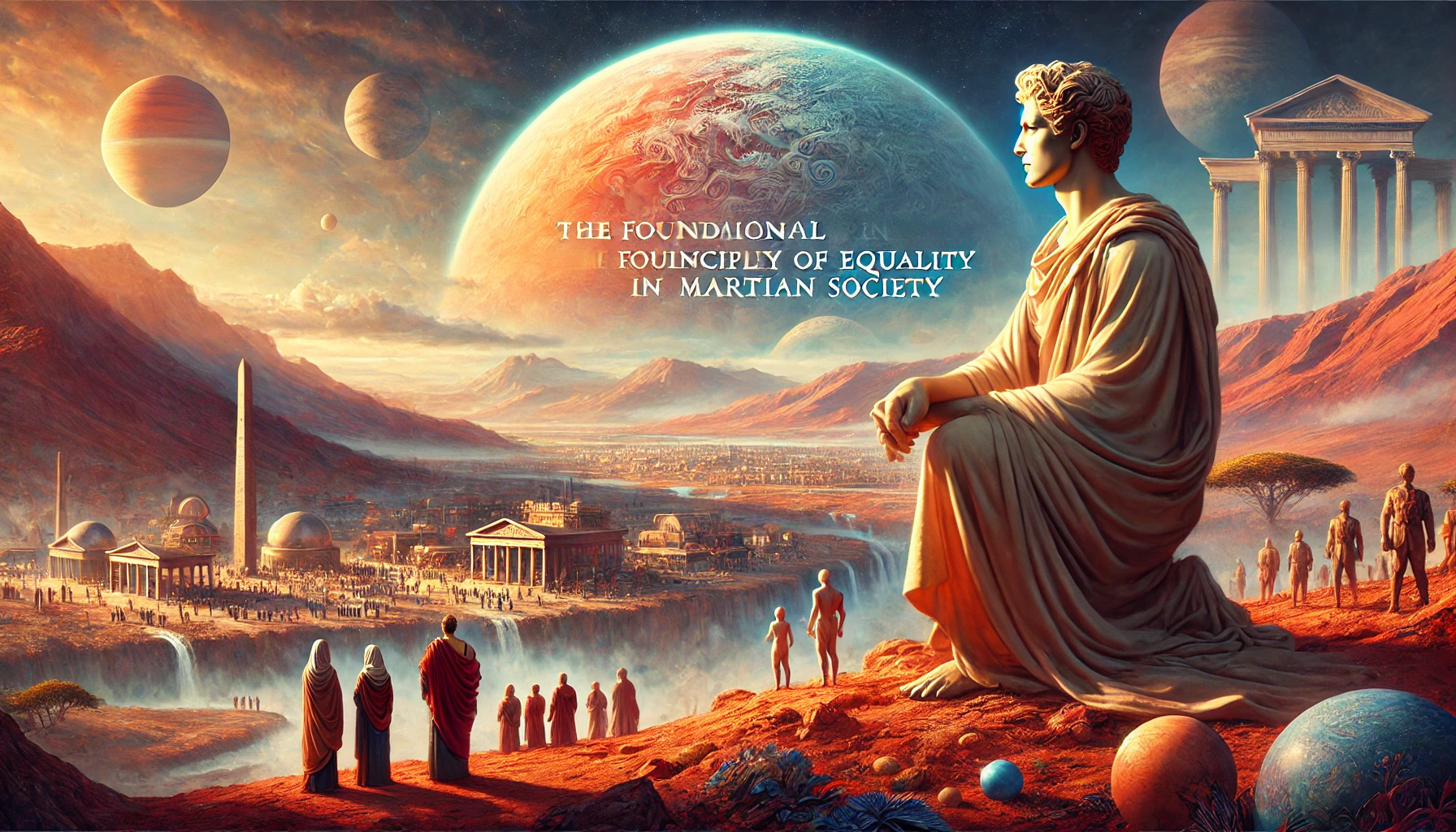CHAPTER I — The Planet Mars and Its Inhabitants
byCHAPTER I — The Planet Mars and Its Inhabitants introduces Eros Urides, a former Martian who seeks to enlighten humanity by sharing the profound insights he gained during his time on Mars. Eros emphasizes the central tenet of Martian society: equality, which transcends wealth, social status, and material possessions. This principle, rooted in a belief that all physical beings are manifestations of the divine, forms the foundation of Martian life and permeates every aspect of their culture. According to Eros, the Martian model of equality is essential for the harmonious existence that defines their civilization, where no one is above or below another, and everyone is valued for their spiritual essence rather than their material achievements.
Eros shares his personal journey, beginning with his education and the eventual assignment of his role, which suited his abilities and passions. In his case, he was tasked with overseeing a segment of a crucial canal system in Urid, the city of his birth. The canal system, which plays a critical role in distributing water across the planet, showcases the Martians’ exceptional ability to integrate advanced technology with natural resources, ensuring the sustainability of their environment. Through his work, Eros gained insight into how Martian society operates seamlessly, with a profound respect for both the natural world and technological innovation. Unfortunately, his life was unexpectedly cut short due to an oversight one cold Martian night, marking the end of his narrative on Mars and the beginning of his quest to share the wisdom of the Martian way of life.
Eros’s mission extends beyond mere storytelling. He views Mars as an ideal society, one that Earth’s inhabitants could learn from and aspire to, provided they are willing to realign with spiritual and divine principles. He asserts that Earth’s moral and spiritual decline—manifested in materialism, greed, and selfishness—has led to societal fragmentation and environmental degradation. In contrast, Martians live in alignment with divine will, guided by spiritual enlightenment and communal cooperation, which have led them to a state of prosperity and balance. This sharp contrast between the two worlds is central to Eros’s message: that spiritual growth and moral integrity are the true drivers of societal advancement, not the pursuit of material wealth.
To communicate his vision, Eros draws on the wisdom of enlightened spirits, both from Mars and Earth, who assist in delivering his message of hope and transformation. His objective is to inspire a global awakening in humanity, showing that true progress can only be achieved by fostering a deeper connection to spiritual values. Eros emphasizes that material progress, no matter how advanced, cannot be sustained without spiritual development. By presenting the Martian way of life, which has flourished due to its commitment to these higher principles, he hopes to spark a movement on Earth that mirrors the collective effort of Martians in creating a society where spirituality, equality, and environmental stewardship are paramount.
The heart of Eros’s narrative is both a personal reflection and an invitation to Earth’s people. He urges humanity to embrace the lessons of Mars, where spiritual alignment with divine principles has led to a society of peace, prosperity, and unity. Eros’s message is clear: societies that prioritize spiritual growth over material gain are better equipped to steward the natural world and achieve lasting harmony. Through his story, Eros aims to awaken humanity to the possibilities that lie ahead, urging them to shed the constraints of selfishness and materialism in favor of a collective vision grounded in equality and spiritual enlightenment. In doing so, he presents Mars not just as a model, but as a beacon for the future of Earth, illustrating the power of spiritual unity in shaping a better world for all.


